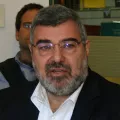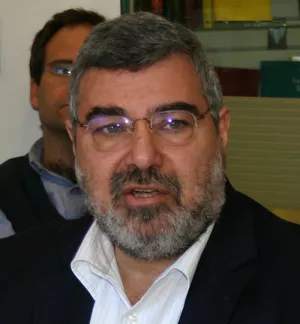DOHA — The election of Michel Aoun as Lebanon’s president Monday tells us much about how political power and state governance systems operate across the Arab world. His election should be analyzed as a fascinating anthropological event about how the political beasts operate in the jungle of the Middle East. It broadly confirms that little has changed in the region in this respect for half a century — except for one small, but potentially important, sign of change in the one arena that has remained almost totally absent from the negotiations and power plays for the Lebanese presidency in the past two and a half years — the Lebanese citizen, and how she or he feels about their country and government.
Aoun’s election confirms that the dominant reality about Lebanese politics remains the profound interaction between domestic and regional forces, with only some seasonal adjustments in the fortunes and priorities of those regional powers that play a major role in how Lebanon is governed — namely Iran, Saudi Arabia, and Syria. All three of them are more focused on Syria, Iraq, ISIS, and Yemen for the moment, and Lebanon largely has become a secondary matter for them.
Aoun’s enduring ten-year-old political alliance with Iran-backed Hezbollah and Saad Hariri’s unilateral compromise to support Aoun in return for the prime minister’s position suggest that in yet one more instance where Iran and Saudi Arabia confront each other through proxies in the Middle East, the Iranians have come out on top. Whether this is because Iranians are better than the Saudis at statecraft, and both subtle and brutal foreign policies, needs to be clarified.
(A research note: This would be a good time for some hardy PhD student somewhere in the world where free enquiry is allowed to examine the tactics and strategies of three non-Arab powers — Iran, Turkey, and Russia — that have pursued tough, often vicious, but persistent policies in the region. They remain standing and largely in control of their destinies, their interests, and key parts of their Middle Eastern neighborhood. Why are no major Arab powers yet able to play a commensurate role in shaping the strategic architecture and balance in the Arab World?)
A striking feature of this presidential election has been the apparently relatively low-key role of Western powers, especially France and the United States, though presumably they remain active behind the scenes, working to promote their interests and their favorite Lebanese allies. The compromise that Saad Hariri made in recognizing Aoun as president can be seen as either a feat of astute, mature, selfless, and self-confident statesmanship, or an admission of his total amateurism and failure as a domestic political leader (of Sunnis in particular) and an ineffective regional ally of Saudi Arabia. The more dominant fact in Lebanese politics (and politics anywhere in the world for that matter, to be fair to Lebanon) is that politicians do whatever they need to do to get elected and remain in power. Perpetual incumbency is the goal that dwarfs all other considerations.
The simple answer to why Hariri caved in and backed Aoun’s presidency would appear to be that Hariri saw which way the wind was blowing in Lebanon, for in all three critical categories of domestic power his star was declining. Regional power politics was tilting a bit to Iran and away from Saudi Arabia; Western big power intervention was not going to save him as it might have in the past, while Russia’s influence in Syria and the region was rising; and, most importantly, street-level political trends in Lebanon seemed to endanger his credibility as a serious national leader.
In the past 18 months, popular citizen sentiments across Lebanon have started to affirm a potentially historic development: individual citizens, and large groups of them at one time on the streets or in ballot boxes, have expressed first their irritation, then their disappointment, and finally their disgust with the traditional oligarchy of sectarian leadership in the country that has allowed life for the ordinary citizen to degenerate steadily. This is most obvious in the realms of the garbage and electricity crises, water and public transport problems, and income and jobs conditions. All of these have worsened steadily in recent years, while the political elite squabble but neither feel the pain that ordinary citizens do, nor find solutions to the problems that face the country.
So on-and-off street protests, civil society activism in Beirut, Sidon, Tripoli and other cities, the emergence of Beirut Madinati electoral list in the Beirut municipal election, and the good showing of Sunni politicians who challenged Hariri in Tripoli all were historic signs that business as usual for old-style confessional leaderships would not do. Lebanon’s Sunnis, like the Christians before them, were looking around for more effective political leadership that transcended hereditary patriarchal power legacies and instead responded to people’s real life needs. The always fascinating anthropology of Arab political power systems is now being joined by the early signs of game-changing geological shifting plates beneath the feet of the political beasts of the jungle.
Khouri, Rami. “Iran, Saudi Arabia, and the anthropology and geology of Lebanon’s presidential election.” Agence Global, November 2, 2016


